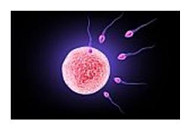Ask Planned Parenthood when life begins and you never know what answer you’ll get. To them, it’s a matter of opinion, not scientific fact.
- Ana Sandoval, Communications and Operations Director at Planned Parenthood Affiliates of California, recently stated, “That varies from person to person—religion to religion.” Her personal belief is life begins “the minute [a woman] finds out that she is pregnant.”
- That’s vastly different from Planned Parenthood president Cecile Richards. “For me, life began when I delivered them,” she responded in regard to her own children. She maintains, “This is a question that I think will be debated through the centuries… it is not something that I feel is really part of this conversation. I think every woman has to make their own decisions.”
- Even the abortion-friendly MSNBC denied science’s role in the beginning of life with this statement, “In fact, ‘life’ and ‘conception’ aren’t scientific terms… they’re subjective, based on personal, religious or political commitments.”
Talk about flat-earth thinkers! Pro-abortion activists certainly aren’t going to let facts get in the way of their agenda. History shows us that they not only ignore the facts, they’ll carefully redefine them to serve their purposes.

The late 1950s and early 1960s ushered in the introduction and FDA approval of the hormonal birth control pill. It wasn’t without controversy. There was debate over the pill’s function. Did it just prevent conception or could it inhibit the implantation of an already conceived life, therefore acting as an abortifacient? The reality was that it could do both. This posed a huge potential controversy in society. And at the time it presented obstacles because some state laws prohibited abortive agents. Advocates knew that the birth control pill would only be widely accepted if marketed as a contraceptive, not a potential abortion drug.
At the 1959 Planned Parenthood/Population Council symposium, Dr. Bent Boving made a recommendation of how to quiet dissenting opinions. He suggested that the definition of pregnancy be changed from the time of fertilization, when a sperm unites with the egg, to when implantation occurs. He said, “the societal advantage of [birth control] being considered to prevent conception rather than to destroy an established pregnancy could depend on something so simple as a prudent habit of speech.”1
In 1965, the American College of Obstetricians and Gynecologists (ACOG) embraced Boving’s vision. The following definitions were printed in the ACOG Terminology Bulletin #1, from September 1965:
- FERTILIZATION is the union of spermatozoon and ovum
- CONCEPTION is the implantation of a fertilized ovum
This change of terminology ushered in an era of various forms of so-called “contraceptives.” The sleight of hand with the facts made it possible for birth control methods that previously stated to “end” pregnancy were instead now said to “prevent” pregnancy. This was nothing shy of a deliberate and deceptive manipulation meant to mislead the public. The truth is this isn’t preventing pregnancy; it’s the killing of a tiny human in the earliest stage of life.

No biological basis exists to support redefining conception. It means there’s now this suspended period of time during prenatal development between fertilization and implantation. If it’s not life, what is it? The clear scientific consensus in embryology textbooks is life begins at the union of sperm and egg. They note that obstetricians date pregnancies in only two ways—one being from the date of the last menstrual cycle and the other being at fertilization. Implantation is not included as an indicator of the beginning of life. References such as Merriam-Webster, Dictionary.com, The American Heritage Stedman’s Medical Dictionary and WebMD.com all cite fertilization in the definition of conception. And a study conducted by the Journal of Maternal-Fetal Medicine shows that 73% of participating OBGYNs state that conception is synonymous with fertilization.
So, who is adopting this revised definition? The answer is the abortion industry. Planned Parenthood’s website explains “pregnancy begins when a fertilized egg implants in the uterus.” In a 2005 Guttmacher Report on Public Policy, it explains why fertilization is ignored. “Enforcing a definition that pregnancy begins at fertilization would implicate not just some hormonal methods [of birth control], but all of them.” In other words, recognizing life begins at fertilization would mean they’d have to acknowledge the abortifacient properties of the birth control methods they propagate.
They want you to forget the facts. They don’t want you to realize that the only ones to benefit from changing how the beginning of life is defined are those who stand to profit from ending the lives of the unborn.
Supporting LIFE from its beginning,
Bradley Mattes
Executive Director
Life Issues Institute

Leave a Reply